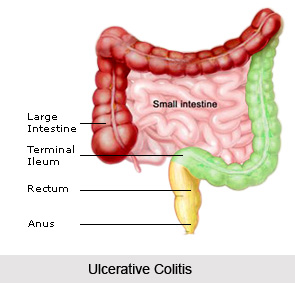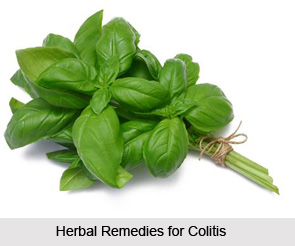 Treatment of Colitis can be started at home simply by avoiding particular foods and other kinds of triggers. If a person experiences bloody diarrhea, fever or intense pain, it is reasonable and appropriate to inquire about medical help by calling a health care practitioner or seeking care at a hospital emergency department. The best treatment of colitis can be done once the cause is structured out. Many cases involve little more than symptomatic care, including clear fluids to relax the bowel and medications to control pain. Some patients become acutely ill and will need intravenous fluids and other interventions to treat their illness.
Treatment of Colitis can be started at home simply by avoiding particular foods and other kinds of triggers. If a person experiences bloody diarrhea, fever or intense pain, it is reasonable and appropriate to inquire about medical help by calling a health care practitioner or seeking care at a hospital emergency department. The best treatment of colitis can be done once the cause is structured out. Many cases involve little more than symptomatic care, including clear fluids to relax the bowel and medications to control pain. Some patients become acutely ill and will need intravenous fluids and other interventions to treat their illness.
Infections that cause diarrhea and colitis sometimes may or may not require antibiotics, depending upon the cause. Viral infections resolve with the loyal care of fluids and time. Some bacterial infections like Salmonella also do not need antibiotic therapy; the body is able to get rid of the infection on its own. Other bacterial infections like Clostridium difficile require treatment with antibiotics. The inflammatory bowel diseases (IBDs), ulcerative colitis and Crohn`s disease are often restricted by a combination of medications that are used in a step-wise approach. Initially, anti-inflammatory medications are used to treat Colitis, and if these are less than successful, medications that curb the immune system can be added. In the most severe cases, surgery may be involved to remove all or parts of the colon and small intestine.
Treatment for ischemic colitis is initially supportive, using intravenous fluids to rest the bowel and prevent dehydration. If adequate blood supply to the bowel isn`t restored, surgery may be compulsory to remove parts of the bowel that have lost blood supply. Most causes of colitis occur along with diarrhea and abdominal pain. These symptoms are also found with mild illnesses like viral enteritis (inflammation of the colon). Initial treatment of Colitis at home may include a clear fluid diet for 24 hours, rest, and acetaminophen (Tylenol) as needed for pain. Often symptoms determine quickly and no further care is needed.

Often medications are required to treat Colitis. Over-the-counter medications may be used for diarrhea and crampy abdominal pain; however, medical advice should be obtained if there is blood in the stool or the pain is intense. Loperamide (Imodium) is an efficient medicine to check diarrhea. Acetaminophen or ibuprofen can be used for pain control. Depending upon the cause of the colitis, medication may be prescribed to control or cure symptoms. Antibiotics may be helpful in colitis caused by some infections. Anti-inflammatory and immune suppression drugs can be used to control the symptoms of provocative bowel disease.
In ulcerative colitis, removal of the colon cures the disease. In case of other illnesses, usually the part of the colon that is at risk or damaged is removed. Diet is also a method of treatment in Colitis. A clear fluid diet allows the colon to rest, since the fluid is absorbed in the stomach and none is passed into the colon to be changed as stool. Adequate hydration is important because an individual can lose a significant amount of fluid with each Diarrhoeal bowel movement. Aside from the daily fluid requirements, this overload loss needs to be replaced; otherwise dehydration will occur and potentially worsen the symptoms of abdominal pain and cramping.
Intravenous (IV) fluid may be required to treat Colitis, especially if the patient is unable to drink enough fluids by mouth. For some illnesses like ischemic colitis, in which blood flow to the bowel is already compromised, sufficient hydration is a key element in treatment of Colitis.




















